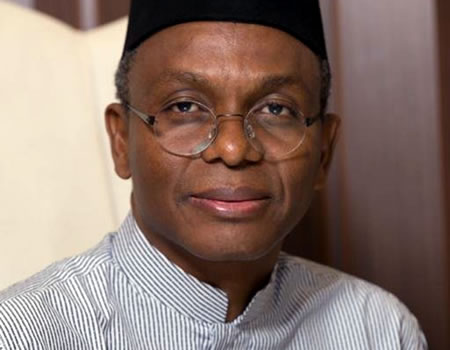
THE recent upgrading of four ruling houses, Lere, Kagarko, Kauru and Kajuru, from chiefdoms to emirate status in Kaduna is generating mixed reactions among stakeholders. While some people see the new order as a grand design by the administration of Governor Nasir el-Rufai to Islamise the state, others see it as a mere re-branding done in tandem with the aspirations of the people of these chiefdoms.
The Chief Executive Officer of House of Justice, Gloria Mabeiam Ballason, described the government’s move as a violation of international, regional and constitutional laws.
Ballason said the move was in violation of Article 15 of the International Covenant on Economic, Social and Cultural Rights which recognises the right to take part in cultural life and Article 22 of the African Charter which specifically mandates states to have due regard to the freedom of identity and common heritage of a people.
The lawyer described as unfortunate, what she described as the governor’s serial rights violation and “his failure to manage diversity and equal participation in governance” which, according to her, has continued to unsettle the people.
“Kaduna State effectively has a governor who delights in controversy and stoking dangerous embers. He is often in the news for the wrong reasons. If he is not demolishing houses of his opponents or the masses, he is spewing hate speeches or throwing people out of jobs without recourse to due process.
“This recent arbitrary move to throw religion and culture into the mix is sensitive, given the history of the state. No people or culture should be treated as dispensable and disposable. It is a matter of rights except there is a referendum by the indigenous people, an amendment of state laws and public hearings to that effect. No governor or authority has the power to foist an identity on a people,” she said.
Speaking on the development, a resident of one of the chiefdoms, who pleaded for anonymity, told Saturday Tribune that “for quite some time, past and previous administrations have tried to Islamise our area, but they have failed woefully. Now the governor of the state, el-Rufai, is taking the bull by the horns in attempting to succeed where others have failed, but I assure you, it would not work.”
A resident of Kajuru town who identified himself as Ishaya Ibrahim maintained that the people of his area have their own culture and language and “nobody will bring another people’s custom to us.”
However, an official of the Ministry for Local Government and Chieftaincy Affairs who wouldn’t like his name in print has a contrary view. He said all the sentiments were nothing but misconceptions. “It is just an attempt to heat up the polity, because it does not in any way mean all the chiefdoms in the concerned areas have lost their identity. The government did not tamper with the existing structure.”
He said in Lere Local Government Area, for instance, “there are four chiefdoms, namely, Saminaka, Lere, Kurama and Piriga, but only Lere has been converted from chiefdom into emirate.
According to him, in Kagarko Local Government Area, “there are three chiefdoms, namely Koro, Jere and Kagarko, but only Kagarko has been confirmed as an emirate, while, in Kauru Local Government Area, there are two chiefdoms, Idrisu and Wadai and only one of the chiefdom was confirmed as emirate. The same thing with Kajuru Local Government Area where there are four chiefdoms, namely Gajeran Sarki, Sarkin Kajuru Duna, Sarkin Kajuru Mbaga and Muhammad Murabus and only one chiefdom was given the emirate status.”
Corroborating the above claim, a community leader in Lere Local Government Area, Alhaji Sani Lere, insisted that the recent development was essentially what the people bargained for, saying there was nothing sinister about it.
“It is in conformity with the wishes and aspirations of the Lere chiefdom. So, the cry of imposition is nothing but laughable. We feel the nomenclature that is ascribed to our traditional ruler, that is, ‘Chief of Lere’, is aligned to us and so we feel our ruler should be addressed as ‘Emir of Lere’. Anything short of that is politically motivated,” Alhaji Lere said.
The Commissioner for Local Government and Chieftaincy Affairs, Professor Kabir Mato, contended that the recent government’s directive was based on a request by the concerned chiefdoms.
According to him, his predecessor, Ja’afaru Sani, constituted a 13-man committee on 20 June, 2017 to review the existing chieftaincy system and the state executive council met and deliberated on the committee’s report and subsequently approved the recommendation to upgrade the four chiefdoms to emirates.
He dismissed the insinuation that the new status of emirate in the respective communities was intended to ensure domination by a section of the community. He noted that if any chiefdom wants to change its nomenclature, the government would treat such a request in accordance with the laws of the state.





